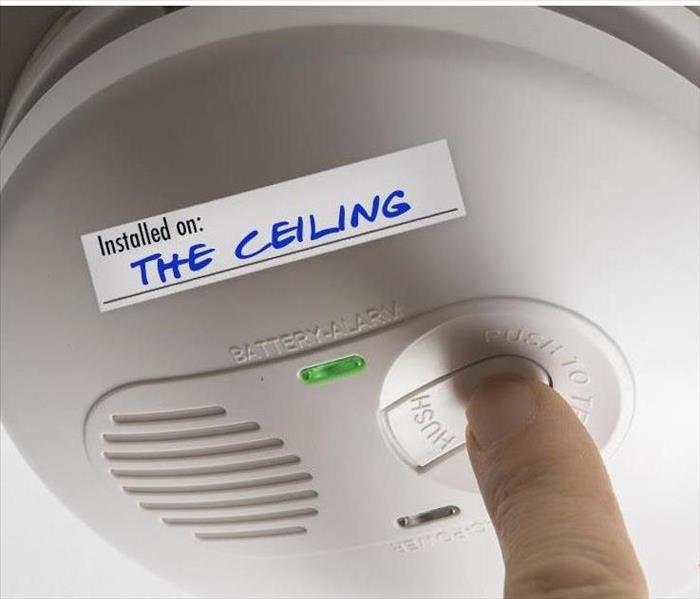Smoke Alarm Safety for your home.
1/14/2020 (Permalink)
Smoke alarms save lives. Smoke alarms that are properly installed and maintained play a vital role in reducing fire deaths and injuries. If there is a fire in your home, smoke spreads fast and you need smoke alarms to give you time to get out. SERVPRO wants you to stay safe.
Here's what you need to know
- A closed-door may slow the spread of smoke, heat, and fire. Install smoke alarms in every sleeping room and outside each separate sleeping area. Install alarms on every level of the home.
- Smoke alarms should be interconnected. When one sounds, they all sound.
- Larger homes may need extra smoke alarms.
- Test your smoke alarms at least once a month. Press the test button to be sure the alarm is working. If the alarm still does not work replace the batteries, and if it still doesn’t work replace it.
- There are two kinds of alarms. Ionization smoke alarms are quicker to warn about flaming fires. Photoelectric alarms are quicker to warn about smoldering fires. It is best to use both types of alarms in the home.
- When a smoke alarm sounds, get outside and stay outside. Don’t wait
- Replace all smoke alarms in your home every 10 years whether they are still working or not.
Facts about smoke alarms
- Smoke alarms provide an early warning of a fire, giving people additional escape time. In 2012-2016, smoke alarms were present in three-quarters (74%) and sounded in more than half (53%) of the home fires reported to U.S. fire departments.
- Almost three of every five home fire deaths resulted from fires in homes with no smoke alarms (40%) or no smoke alarms that were working (17%).
- The death rate per 1,000 reported home fires was more than twice as high in homes that did not have any working smoke alarms (12.3 deaths per 1,000 fires), either because no smoke alarm was present or an alarm was present but did not operate), as it was in homes with working smoke alarms (5.7 per 1,000 fires).
- In fires in which the smoke alarms were present but did not operate, more than two of every five (43%) of the smoke alarms had missing or disconnected batteries.
- Dead batteries caused one-quarter (25%) of the smoke alarm failures.
For more information on smoke alarms and other fire protection related information visit the website for the National Fire Protection Association.






 24/7 Emergency Service
24/7 Emergency Service
